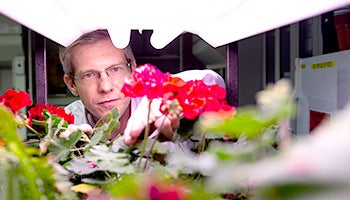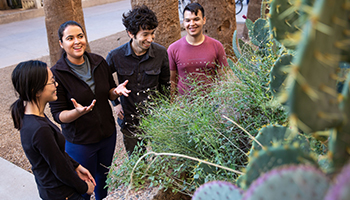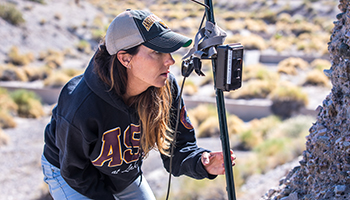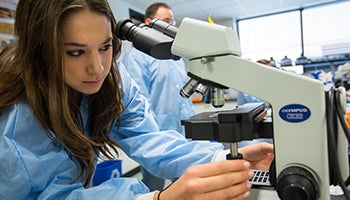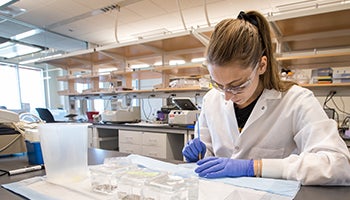
Are you fascinated by interactions between animals, people and the changing environment? Are you interested in discovering and developing new ideas in research? Join a nurturing community of distinguished faculty and exceptional peers, and tackle emerging questions in the dynamic field of animal behavior.

Do you need more than a foundation in biology? Do you want to take your training into society and bring about change? Within this multidisciplinary program, you can develop knowledge and skills for tangible action and prepare for employment, a doctoral program, or other professional studies.
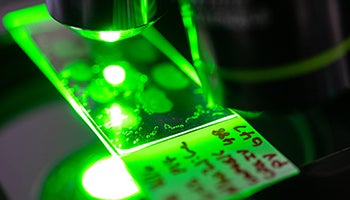
The Doctor of Philosophy program in biology with a concentration in complex adaptive systems science trains the next generation of scientists in advanced concepts and methods needed for approaching diverse phenomena in the social and life sciences.The program is tightly integrated with diverse, ongoing university-wide research at Arizona State University on complex adaptive system science. It emphasizes the value of a complex adaptive perspective to give students better insight and a more active role in seeking solutions to a broad array of critical issues facing society today. Students become fluent in the common language of complexity while also receiving a solid foundation in the domain knowledge of existing academic disciplines.
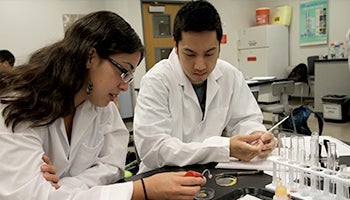
Unlock your potential in biological sciences. Tailor your studies in genetics, ecology, systems biology or cellular biology. Build a strong foundation and deepen your expertise to undertake groundbreaking research. Prepare to innovate and lead in your chosen field, supported by distinguished faculty and extensive research facilities.

Be part of the data-driven revolution in the life sciences. Today's breakthroughs rely on powerful computational methods that extend beyond the bench, enabling once impossible discoveries. In this program, you'll gain advanced skills in data analysis, modeling and informatics that complement experimental approaches, preparing you to tackle complex biological questions.

Be part of the data-driven revolution in the life sciences. Today's breakthroughs rely on powerful computational methods that extend beyond the bench, enabling once impossible discoveries. In this program, you'll gain advanced skills in data analysis, modeling and informatics that complement experimental approaches, preparing you to tackle complex biological questions.
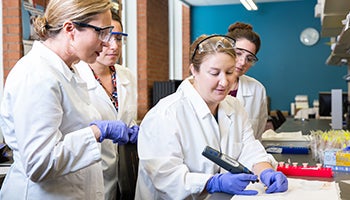
How do organisms adapt? What is the history of our species? Dobzhansky famously wrote, "Nothing in biology makes sense except in the light of evolution." In this program, you'll learn about fundamental processes that govern the history and dynamics of living systems, from molecules to cells, from societies to ecosystems.

Studying the history and philosophy of science while embedded among biologists in ASU's School of Life Sciences gives you distinct insights into the character and development of the biological sciences. You'll benefit from participating in the university's interdisciplinary culture and integrate coursework from the sciences and humanities into your education.

Recent breakthroughs have revolutionized our understanding of how the nervous system works at a biological level. Are you interested in exploring these discoveries? Do you aspire to conduct innovative research in neuroscience? This program equips you with a strong foundation for launching a career across a wide variety of neuroscience-related fields

Are you interested in recent breakthroughs pertaining to the function of the nervous system and disease? Do you want to conduct innovative research in basic science? In this interdisciplinary training program, you'll gain a strong foundation in molecular, cellular, systems and behavioral neuroscience, preparing you for a wide variety of careers.
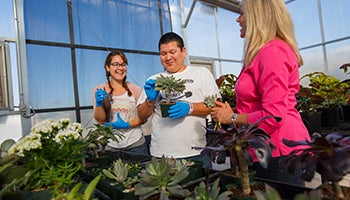
Plants are fundamental to life on Earth. Conducted jointly by ASU and the Desert Botanical Garden, this program nurtures future plant and environmental biologists. You'll be equipped with quantitative skills and knowledge of human dimensions relevant to dealing with global climate change, food insecurity and loss of biodiversity.

